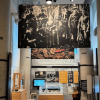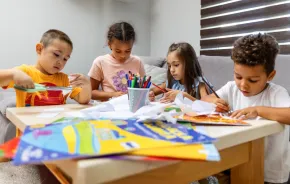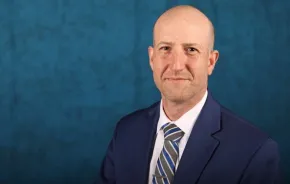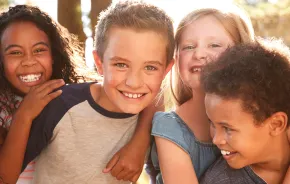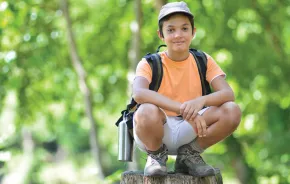Let's face it: We're a sports-crazed culture. Golfers and baseball
players have achieved near rock-star status in our country, and chances
are more people know who won the Tour de France than who conducts the
city's orchestra.
Youngsters begin participating in the athletic arena with amazing
post-delivery momentum. Tiny tot gymnastics, swimming and -- yes --
yoga classes fill quickly, with organized sport teams hovering closely
on the preschool horizon.
But what if your child is more Tom Hanks than Hank Aaron? Or would rather toot a tuba than swing a racket?
Relax. The dual worlds of music and drama beckon both the sports-minded
set and the kids who seek options that come without teams, balls and
competition.
For some young students, music or theater offers one more outlet -- an
add-on to soccer, science club or chess. "These are the kids who love
to do everything -- they're busy and well-rounded," says Sara Boos,
artistic director of the Northwest Girlchoir.
Karen Sharp, program director for education at the Seattle Children's
Theatre, agrees. "Plenty of kids who are attracted to drama and theater
also play on sports teams," she says. "And some of those skills can be
transferable."
Other children find themselves simply hooked on arts. "This is the
child who loves to sing -- who perhaps can't stop singing -- and might
also study piano and flute," Boos says.
Fitting in
For some kids, theater groups offer a safe haven. "Sometimes a parent
will say, 'this is the only place they feel like they fit in,'" Sharp
says. "In these classes, children connect with fellow students in a way
they can't with sports. Here, they can feel successful."
The theater environment celebrates individuality, says Kati Nickerson,
director of youth education for the Village Theatre in Issaquah.
"There's room for all sorts of kids to be involved in shows. It's not
just a slice of a school environment, where kids hang together because
they're alike," she says. "Here, the nerds, geeks, cheerleaders and
jocks are all in the same room.
They get to understand each other and see each other in different ways."
Working collectively to put on a show helps kids develop special bonds,
Nickerson says. "They connect to each other through a shared love that
they don't find as common everywhere." Boos also talks about "building
a community" and "being part of a team" through music. "We aren't
competitive," Boos says. "We put together wonderful concerts without
having to win or lose every week -- though we like to think we're
always winning."
Developing skills
Music education -- much like physical education -- helps children hone
both small and gross motor skills, says Marta Olson, performing arts
program manager for Seattle Public Schools. "That's a beautiful
combination for development."
And music takes mental discipline. "You can drop other activities for
awhile; but you can't do that with an instrument and be successful,"
she says.
The best schools offer students a mix of learning experiences in
subjects such as the arts, technology and sports, Olson says. "Adding
the arts helps the cultural learning environment of the school. When
you have a balanced school program, you have many ways that kids can
find opportunities to fit in and feel successful."
Linda Morgan writes frequently on education issues for ParentMap.
Ways to develop a child's inner Beethoven
By Zart Dombourian-Eby, as told to Linda Morgan
My daughters, ages 17 and 21, are musicians. One plays the oboe, the other plays bassoon.
We started them at age 4 with piano lessons. They adored their teacher.
I can't stress enough the importance of finding someone your child
clicks with.
No child enjoys practicing. So you use bribery to get them to practice:
stars, a new Barbie Doll, or a My Little Pony. It works.
Many kids drop music in junior high. What helps is going to a school
where music is cool. My daughters went to Washington Middle School,
which has a strong music program. Then they went to Garfield High
School, which has a great music tradition.
One of my daughters played basketball every year. It is possible to do
both sports and music. You don't have to pick one or the other.
You get similar things out of music and sports, especially when you're
in an ensemble. You learn to be part of a team. But it's true that it's
generally cooler to be a sports jock than a music jock. As a society,
we place more value on sports.
Parents who want their children involved in music should start their
kids young. Beginning with the piano is an excellent way to go -- piano
gives immediate gratification. After they've had that foundation, then
let them start taking up instruments.
It's important to find the instrument that suits your child. Certain
instruments fit some children better than other instruments, depending
on the child's personality. Go to the music store and try to get a feel
for what they're into.
And, don't overlook what I call the "college scholarship instruments"
-- the ones not as often played. The French horn, viola, trombone,
double bass -- the classical musical world is desperate for people to
play these.
You have to have a private music teacher. Even in the best of schools,
kids can't really learn an instrument in school.
Your children will appreciate music more and have a richer life because
of their early music exposure; they will be well-rounded people.
Zart Dombourian-Eby plays flute and piccolo for the Seattle Symphony.



